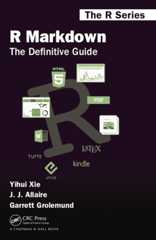- Notifications
You must be signed in to change notification settings - Fork524
LaTeX Journal Article Templates for R Markdown
rstudio/rticles
Folders and files
| Name | Name | Last commit message | Last commit date | |
|---|---|---|---|---|
Repository files navigation
Therticles package provides a suite of customRMarkdown LaTeX formats and templates forvarious formats. Most of the templates are provided and maintained bythe community, and anyone can contribute a new template. SeeHow tocontribute below.
You can install and userticles from CRAN as follows:
install.packages("rticles")If you wish to install the development version from GitHub (which oftencontains new article formats), you can do this:
# install.packages("pak")pak::pak("rstudio/rticles")
To userticles from RStudio, you can access the templates throughFile -> New File -> R Markdown. This will open the dialog box whereyou can select from one of the available templates:
If you are not using RStudio, you’ll also need to installPandoc following theseinstructions.Then, use thermarkdown::draft() function to create articles:
rmarkdown::draft("MyJSSArticle.Rmd",template="jss",package="rticles")rmarkdown::draft("MyRJournalArticle",template="rjournal",package="rticles")
This will create a folder containing a Rmd file using the correspondingoutput format and all the assets required by this format.
Currently included templates and their contributors are the following:
You can also get the list of available journal names withrticles::journals().
rticles::journals()#> [1] "acm" "acs" "aea" "agu"#> [5] "ajs" "amq" "ams" "arxiv"#> [9] "asa" "bioinformatics" "biometrics" "copernicus"#> [13] "ctex" "elsevier" "frontiers" "glossa"#> [17] "ieee" "ims" "informs" "iop"#> [21] "isba" "jasa" "jedm" "joss"#> [25] "jss" "lipics" "lncs" "mdpi"#> [29] "mnras" "oup_v0" "oup_v1" "peerj"#> [33] "pihph" "plos" "pnas" "rjournal"#> [37] "rsos" "rss" "sage" "sim"#> [41] "springer" "tf" "trb" "wellcomeor"
Those are the values to use withinrmarkdown::draft().
Under the hood, LaTeX templates are used to ensure that documentsconform precisely to submission standards. At the same time, compositionand formatting can be done using lightweightmarkdown syntax,and R code and its output can be seamlessly included usingknitr.
There are two main places to get help:
TheRStudiocommunity is afriendly place to ask any questions aboutrticles. Be sure touse the
rticlestag.Stack Overflowis a great source of answers to commonbookdown questions. Usethe tags
[r][rticles]if you ask a question.
Please note that the rticles project is released with aContributorCode of Conduct.By contributing to this project, you agree to abide by its terms.
Most of the templates are contributed directly by the users in thecommunity. If you wantrticles to offer a new journal format, youcan contribute by the following way.
You may not feel confident enough or may not have time to contribute anew format. By opening a new issue, you can share the idea for thisformat, and see if someone in the community can help on it.
This is not the best way to quickly get your format included but atleast it is a great way to see if others are interested too.
To see the existing suggested formats, just filter issues with thehelpwanted:heart:label. You can then add a 👍 or help to add the template 😉.
To contribute a new format, you need to open a new pull request (PR).When opening the PR, you’ll see thePRtemplateexplaining how to proceed and what is important to check. Please followit.
Even if you are just starting or you are not finished, you share yourwork by creating adraftPR.It is a great way to let us know that you are still working on it (likethese openedones),and it is also a great way to ask for help from the community.
When you are ready, you can submit the PR for review, and we williterate until it is merged.
The best way to get started is to look at the previous examples ofsubmitted PR. You’ll find links to them in the tableabove.
All therticles format are build similarly by providing a new pandoctex template to replace the default one. You’ll learn more about pandoctemplates in these places:
You can studyexistingformatsto see how all this works.
About
LaTeX Journal Article Templates for R Markdown
Topics
Resources
Code of conduct
Contributing
Uh oh!
There was an error while loading.Please reload this page.
Stars
Watchers
Forks
Uh oh!
There was an error while loading.Please reload this page.


